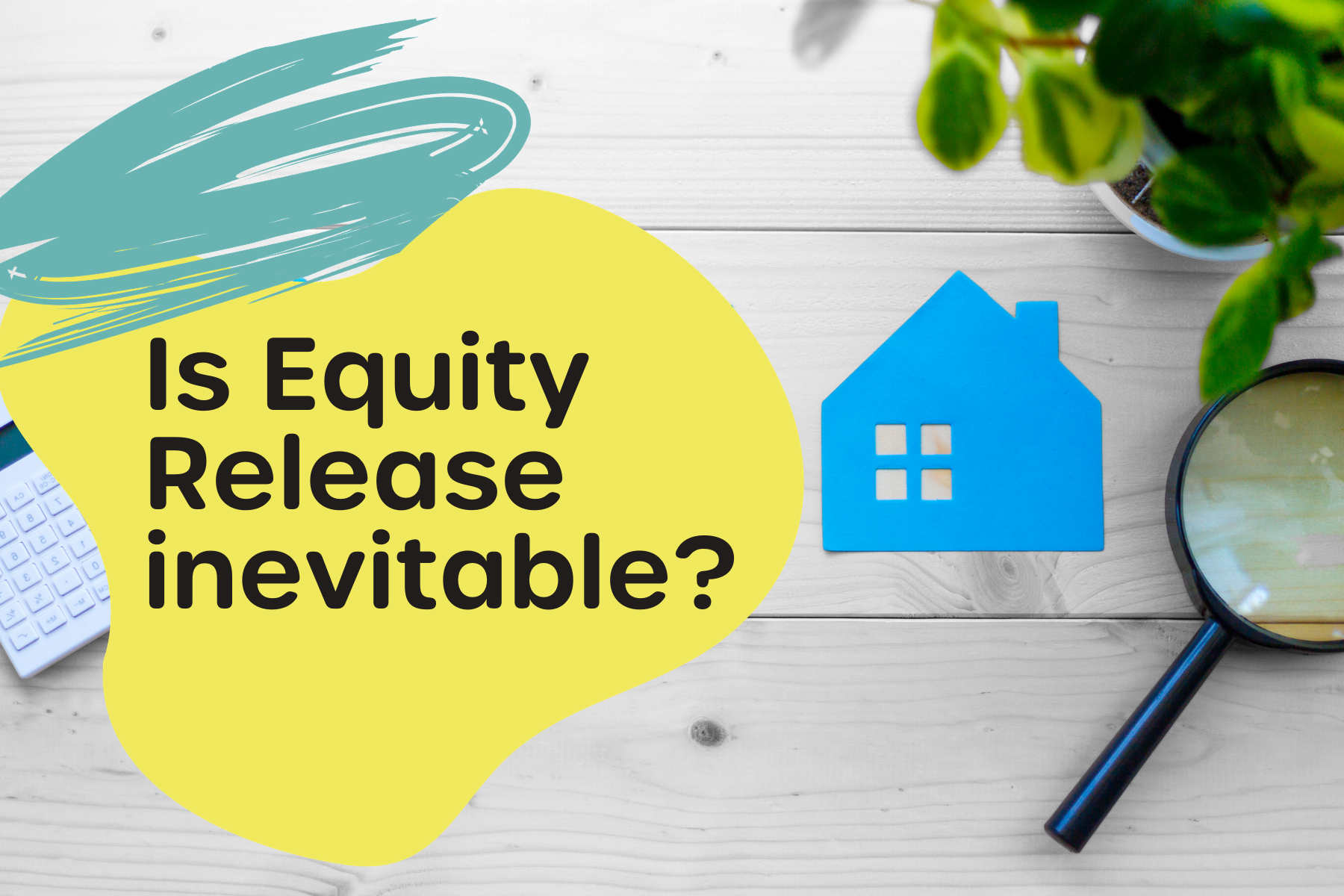Learn before you leap. Is Equity Release inevitable once you’re over 50?
In a recent introductory piece for Silversurfers, Over the hill? Over the limit? Over stated?, we spoke about many of the so-called “established wisdoms” – or unhelpful stereotypes encountered by people in their 50s and older – and we promised we would look into one of the more widely promoted financial products in our next piece; namely, Equity Release. Many people seem to think it’s the main if not the only option for raising a large capital sum once you’re over 50.
It’s true that there are many decisions when you retire, and Equity Release remains a popular and important option for many, but as we’ll soon see, it’s probably a decision that might be best taken after seeking financial advice.
The “now” factor…
Equity Release seems to be especially popular right now: everyone knows that the economic fallout of COVID-19 is having a serious impact on people’s finances. And it’s been widely reported that many older homeowners are now borrowing money simply to help their younger relatives make ends meet. At free2, we recognise and understand the seriousness of the situation for many people. But there are other options to Equity Release, for example, we’ve recently launched our free thinking alternative, the Over 55s Unsecured Loan which may be of assistance. Aimed at borrowers aged 55-70 with guaranteed pension income, it ticks a big box for people who do not want to encumber their homes with a lifetime mortgage and are concerned about the overall cost of equity release borrowing and its impact on their estate.
Equity Release, in summary
Equity Release or Lifetime Mortgages allow you to borrow a large lump sum, as lenders allow you to borrow secured against your property without selling up. However, there are pros and cons to Equity Release, and depending on which type of Equity Release mortgage you choose, there will be a reduction in the value of your estate.
The two main types of equity release are:
- Roll up; no monthly repayments. Instead the interest is added to the loan and the capital plus rolled-up interest is paid off when you die or go into long-term care, when the property is finally sold
- Interest only; monthly interest is charged and paid, and the loan capital amount is repaid by selling the property when you die or if you go into long-term care
If we look at someone aged 60 with a life expectancy of a further 24 years wishing to borrow £50,000 through Equity Release Roll up or Interest only, the outcomes will likely be significantly different:
- Borrowing £50,000 with an Equity Release Roll up mortgage at an assumed rate of 2.8%; the cost of borrowing would be £47,007 in interest rolled up and an overall cost of £97,007 to their estate, after the original capital has been repaid
- Borrowing £50,000 with an Equity Release Interest only mortgage at an assumed rate of 2.8%; the cost of borrowing would be £33,600 in interest paid, with a final cost to the estate of £50,000 to cover repayment of the original capital
Other factors worth bearing in mind: Lenders will usually lend only a maximum of 50% of the current value of the property. At ages 55-60, 25% is often the upper limit, (although some won’t lend until the borrower is 60), with the percentage offered then rising to a typical maximum of around 50% by age 75. Furthermore, early repayment fees on Equity Release can be expensive; and if a borrower wishes to move, the reduced amount of equity may limit their ability to fulfil their plans. Finally, in practice, Equity Release can sometimes limit the ability to pass a family home on to loved ones, as it’s often the main asset available to be used to clear the debts or pay inheritance taxes.
free2 understands that Equity Release meets customers’ needs in many scenarios. However, in our view it should not be rushed into and anyone considering entering into Equity Release should weigh up all the ramifications and seek appropriate independent advice. We’re looking closely at ways to help people keep equity in their homes, keep hold of their savings and their pension, whilst improving their access to lump sums.
Visit our site and read our Fact Sheet; ‘Raising a lump sum over 55’. It will help you compare the different ways of creating a lumps sum – a useful quick read before you speak to your financial adviser.
Important Note
Free2 Limited (trading as free2) is an Appointed Representative of RS Consumer Finance Limited (RSCF) which is authorised and regulated by the Financial Conduct Authority (the FCA). free2 is a credit broker, not a lender, and will only offer loans from RSCF – an offer of credit is subject to status and affordability. Example Loan: 60-year-old non-smoker, £30,000 over 10 years with fixed monthly payments of £359.05, interest rate 7.69% and an APR of 7.97%. Terms & Conditions apply.
ADVERTORIAL
Disclaimer
The contents of this article are for reference purposes only and do not constitute financial or legal advice. Independent financial or legal advice should be sought in relation to any specific matter. Articles are published by us without any knowledge or notice of the circumstances in which you or anyone else may use or rely on articles or any copy of the information, guidance or documents obtained from articles. We operate and publish articles without undertaking or accepting any duty of care or responsibility for articles or their contents, services or facilities. You undertake to rely on them entirely at your own risk, and without recourse to us. No assurance of the quality of articles is given or undertaken (whether as to the accuracy, completeness, fitness for any purpose, conformance to any description or sample, or otherwise), or as to the timeliness of the publication.




















